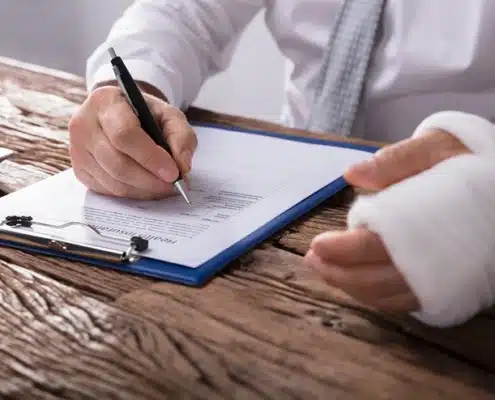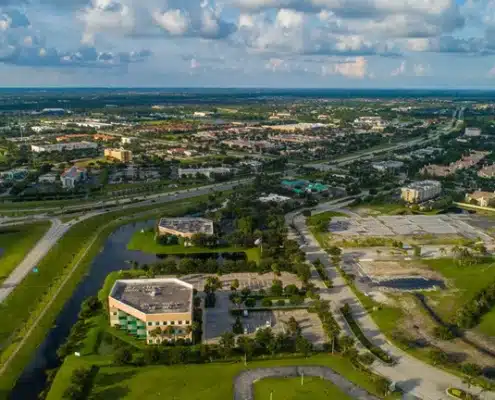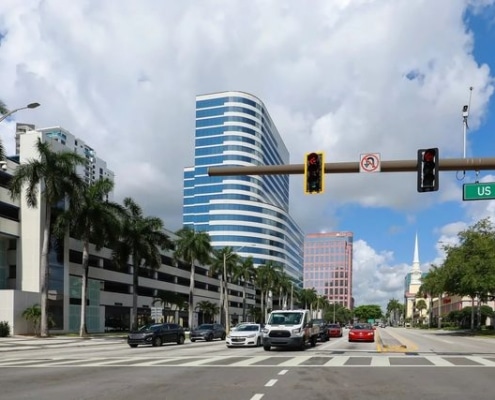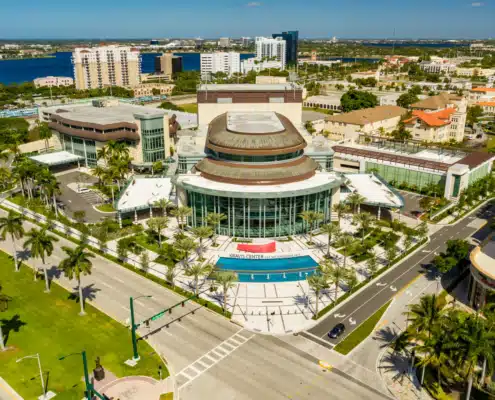Welcome to our personal injury blog. Here you’ll find out more about the hottest topics in personal injury law. Should you ever suffer a personal injury and need professional representation to help you get fair compensation, our expert legal team at Lytal, Reiter, Smith, Ivey & Fronrath is here to help.

25 Mar 2024 by Lytal, Reiter, Smith, lvey & FronrathPersonal Injury Accident
https://www.foryourrights.com/wp-content/uploads/2024/04/personal-injury-terms.webp
494
742
Lytal, Reiter, Smith, lvey & Fronrath
https://www.foryourrights.com/wp-content/uploads/2022/12/lytal-logo-min-300x129-1.webp
Lytal, Reiter, Smith, lvey & Fronrath2024-03-25 16:21:062024-04-24 16:32:1317 personal injury terms you should know17 personal injury terms you should know
Navigating the complexities of a personal injury case can often feel like learning a new language. Understanding the legal jargon is crucial to grasp your case's nuances and communicate effectively with your legal counsel. Below, you’ll find…

18 Mar 2024 by Lytal, Reiter, Smith, lvey & FronrathBoating Accident
https://www.foryourrights.com/wp-content/uploads/2024/04/cruise-ship-injuries.webp
508
763
Lytal, Reiter, Smith, lvey & Fronrath
https://www.foryourrights.com/wp-content/uploads/2022/12/lytal-logo-min-300x129-1.webp
Lytal, Reiter, Smith, lvey & Fronrath2024-03-18 16:42:052024-04-24 16:48:00Navigating troubled waters: Cruise ship injuries are more common than you thinkNavigating troubled waters: Cruise ship injuries are more common than you think
Embarking on a cruise from the sunny ports of Florida offers an escape into a world of sea breezes and endless horizons. Yet, amidst the allure of ocean adventures, the potential for cruise ship injuries lurks beneath the surface. Join our Florida…

11 Mar 2024 by Lytal, Reiter, Smith, lvey & FronrathCar Accident
https://www.foryourrights.com/wp-content/uploads/2024/04/what-happens-to-electric-car-batteries-in-a-crash.webp
428
761
Lytal, Reiter, Smith, lvey & Fronrath
https://www.foryourrights.com/wp-content/uploads/2022/12/lytal-logo-min-300x129-1.webp
Lytal, Reiter, Smith, lvey & Fronrath2024-03-11 16:50:012024-04-24 16:55:26What happens to electric car batteries in a crash?What happens to electric car batteries in a crash?
In the Sunshine State, where the allure of the open road meets the push toward sustainable transportation, electric vehicles (EVs) are becoming an increasingly common sight. But as more Floridians switch to electric, questions arise about the…

04 Mar 2024 by Lytal, Reiter, Smith, lvey & FronrathDog Bites
https://www.foryourrights.com/wp-content/uploads/2024/04/bitten-by-service-dog.webp
509
763
Lytal, Reiter, Smith, lvey & Fronrath
https://www.foryourrights.com/wp-content/uploads/2022/12/lytal-logo-min-300x129-1.webp
Lytal, Reiter, Smith, lvey & Fronrath2024-03-04 16:58:052024-04-24 17:04:05Understanding your rights in Florida: Navigating the aftermath of being bitten by a service dogUnderstanding your rights in Florida: Navigating the aftermath of being bitten by a service dog
Being bitten by a service dog in Florida is an unexpected and distressing experience that can leave victims facing physical, emotional, and legal challenges. In this blog, our Florida dog bite lawyers aim to help victims understand their rights…

26 Feb 2024 by Lytal, Reiter, Smith, lvey & FronrathCar Accident
https://www.foryourrights.com/wp-content/uploads/2024/04/dangerous-intersections-in-port-st-lucie.webp
432
770
Lytal, Reiter, Smith, lvey & Fronrath
https://www.foryourrights.com/wp-content/uploads/2022/12/lytal-logo-min-300x129-1.webp
Lytal, Reiter, Smith, lvey & Fronrath2024-02-26 09:50:382024-04-15 10:31:47These are the 3 most dangerous intersections in Port St. LucieThese are the 3 most dangerous intersections in Port St. Lucie
Port St. Lucie, a city known for its serene landscapes and vibrant community, also harbors particular crossroads that demand extra caution. In this blog, you’ll learn the three most dangerous intersections in Port St. Lucie, tips for preventing…

19 Feb 2024 by Lytal, Reiter, Smith, lvey & FronrathCar Accident
https://www.foryourrights.com/wp-content/uploads/2024/04/dangerous-intersections-in-boca-raton.webp
509
762
Lytal, Reiter, Smith, lvey & Fronrath
https://www.foryourrights.com/wp-content/uploads/2022/12/lytal-logo-min-300x129-1.webp
Lytal, Reiter, Smith, lvey & Fronrath2024-02-19 10:36:552024-04-15 10:47:50These are the most dangerous intersections in Boca RatonThese are the most dangerous intersections in Boca Raton
With its picturesque beaches and bustling commercial centers, Boca Raton is a jewel of Florida’s Atlantic coast. Yet, amid its beauty and charm, particular crossroads pose hidden risks to locals and visitors alike. Below, you’ll learn of…

12 Feb 2024 by Lytal, Reiter, Smith, lvey & FronrathMedical Malpractice
https://www.foryourrights.com/wp-content/uploads/2024/02/cosmetic-procedure-injury.webp
1299
2309
Lytal, Reiter, Smith, lvey & Fronrath
https://www.foryourrights.com/wp-content/uploads/2022/12/lytal-logo-min-300x129-1.webp
Lytal, Reiter, Smith, lvey & Fronrath2024-02-12 10:13:382024-03-28 14:00:06Navigating Cosmetic Procedure Injuries: A Helpful Guide for FloridiansNavigating Cosmetic Procedure Injuries: A Helpful Guide for Floridians
From minimally invasive treatments to more complex surgeries, cosmetic procedures are generally sought for enhancement and rejuvenation. However, like any medical intervention, they carry risks and potential for injuries, especially if the treating…

05 Feb 2024 by Lytal, Reiter, Smith, lvey & FronrathCar Accident
https://www.foryourrights.com/wp-content/uploads/2024/02/dangerous-intersections-fort-lauderdale-lytal-1.jpg
427
750
Lytal, Reiter, Smith, lvey & Fronrath
https://www.foryourrights.com/wp-content/uploads/2022/12/lytal-logo-min-300x129-1.webp
Lytal, Reiter, Smith, lvey & Fronrath2024-02-05 10:46:342024-03-29 15:16:04These are the most dangerous intersections in Fort LauderdaleThese are the most dangerous intersections in Fort Lauderdale
Fort Lauderdale, known for its beautiful beaches and vibrant lifestyle, has its share of traffic challenges. Among these, the dangerous intersections in Fort Lauderdale pose a significant risk to drivers, cyclists, and pedestrians. Below, our…

22 Jan 2024 by Lytal, Reiter, Smith, lvey & FronrathCar Accident
https://www.foryourrights.com/wp-content/uploads/2024/02/stealing-cars-with-usb.webp
1414
2121
Lytal, Reiter, Smith, lvey & Fronrath
https://www.foryourrights.com/wp-content/uploads/2022/12/lytal-logo-min-300x129-1.webp
Lytal, Reiter, Smith, lvey & Fronrath2024-01-22 10:34:522024-03-28 14:00:07The concerning link between people stealing cars with USB cables and an increased number of crashesThe concerning link between people stealing cars with USB cables and an increased number of crashes
Recently, a new method of car theft has emerged that is as innovative as it is concerning: cars being stolen using USB cables. While this trend highlights the evolving nature of vehicle theft, it also raises an important question – do stolen…

08 Jan 2024 by Lytal, Reiter, Smith, lvey & FronrathCar Accident
https://www.foryourrights.com/wp-content/uploads/2024/02/tesla-recall-2023.webp
1414
2121
Lytal, Reiter, Smith, lvey & Fronrath
https://www.foryourrights.com/wp-content/uploads/2022/12/lytal-logo-min-300x129-1.webp
Lytal, Reiter, Smith, lvey & Fronrath2024-01-08 11:10:092024-03-28 14:00:07Inside the “Great Tesla Recall” of 2023Inside the “Great Tesla Recall” of 2023
No other company has recently made a more prominent name for itself in automobile technology than Tesla. However, a reflective look at the defective systems in its technology that has cost unsuspecting drivers and victims financially, physically,…

29 Dec 2023 by Lytal, Reiter, Smith, lvey & FronrathPersonal Injury Accident
https://www.foryourrights.com/wp-content/uploads/2024/02/new-law-in-florida-2023.webp
1415
2120
Lytal, Reiter, Smith, lvey & Fronrath
https://www.foryourrights.com/wp-content/uploads/2022/12/lytal-logo-min-300x129-1.webp
Lytal, Reiter, Smith, lvey & Fronrath2023-12-29 11:01:482024-03-28 14:00:07Recap on new laws in Florida: 2023 editionRecap on new laws in Florida: 2023 edition
For many people suffering an injury in a car accident, slip and fall accident, or medical malpractice, receiving compensation is very straightforward. You submit a claim, and the insurance company pays you what you are owed. Yet, laws today…

27 Dec 2023 by Lytal, Reiter, Smith, lvey & FronrathCar Accident
https://www.foryourrights.com/wp-content/uploads/2024/02/dangerous-intersections-west-palm-beach.webp
1413
2121
Lytal, Reiter, Smith, lvey & Fronrath
https://www.foryourrights.com/wp-content/uploads/2022/12/lytal-logo-min-300x129-1.webp
Lytal, Reiter, Smith, lvey & Fronrath2023-12-27 10:55:322024-03-28 14:00:07Most dangerous intersections in West Palm BeachMost dangerous intersections in West Palm Beach
Car accidents at intersections can cause devastating injuries. Knowing the most dangerous intersections in West Palm Beach is essential in avoiding accidents. However, if you’ve already been injured in a motor vehicle accident, a West Palm…



